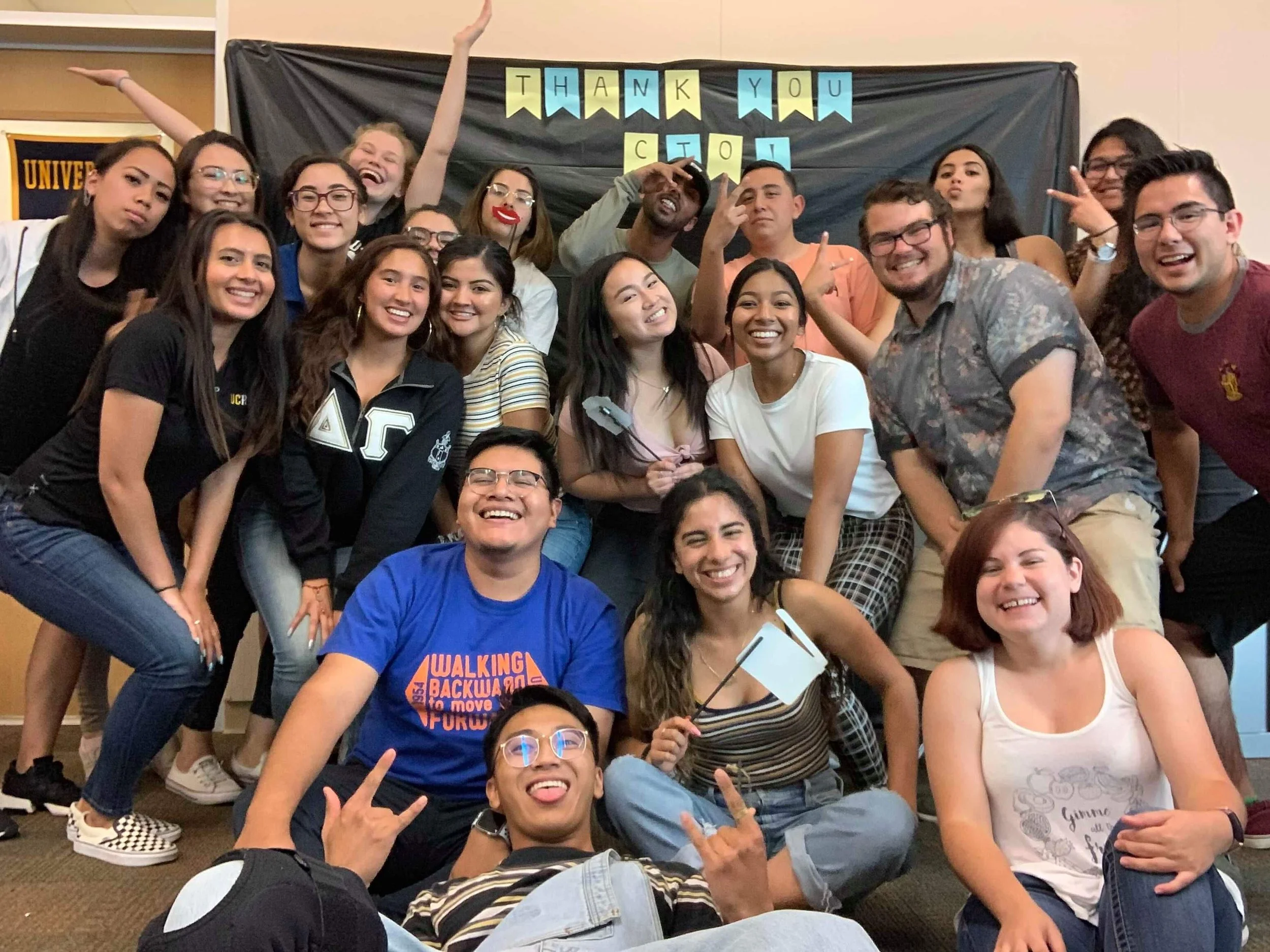Finding Identity in 2025
This is NOT a post about politics. This is about preservation.
Recently, I saw something that hit close to home. Scrolling through social media, I came across a post about Hispanic Heritage Month celebrations. It said that due to fears surrounding immigration raids, fewer parades and celebrations were planned for September.
Fear is powerful. It can suppress us. After the incident I mentioned in my first blog post, I was fearful that I wouldn't belong if I kept being seen as Mexican. That fear lasted for years.
Escaping Heritage: The Story Behind Eddie Monix
I'm often asked about my name. In high school, I became self-conscious about my last name and my Mexican-American identity. Maybe it was my school or the area I grew up in, but having a Spanish surname meant I stood out—and not always in ways I wanted. I faced biases and assumptions, so I looked for a way to define myself without my culture defining me first.
One day, I watched "Semi Pro" starring Will Ferrell and Woody Harrelson. Harrelson's character was named Ed Monix. The name sounded neutral and catchy—distinctive but without being tied to any heritage. So Eddie Monix was born.
Me in 2018 while at UC Riverside
At first, it was an escape from a heritage I was somewhat ashamed of. As Monix, I could create my own story in high school and early college. This became particularly useful when I started at Arizona State University, where I was one of maybe two or three Hispanics on my floor. As an engineering major, I was definitely a minority. As if my skin color didn't give it away, I would introduce myself as Eddie Monix or Ramz, making sure not to mention my actual last name unless I knew the person wouldn't judge. I rarely spoke Spanish and would actively deny knowing the language, often saying I only knew French from high school.
After I left ASU and returned to California to continue my education, something changed. At UC Riverside, I saw more people who looked like me. They spoke Spanish openly. They wore Mexico soccer jerseys around campus. There were clubs and organizations promoting Hispanic culture. These people weren't hiding who they were. I'm sure ASU had this too, but at least in my circles, it wasn't visible.
Slowly, I opened up. I had friends who were proud of their individual cultures and encouraged me to accept mine. I spoke Spanish out loud again, however broken it may have been. I listened to Spanish music and watched shows in Spanish. Everything I had suppressed for years was creeping back out.
But the name stuck. People still called me Eddie Monix from social media handles. Some even added a French flair to it (think "Monet" or "Monae"). I used Monix on my hockey jersey, as my DJ name during College Nights in Riverside, and for my photography business.
It was bittersweet. I had begun accepting my heritage and was on the path to celebrating it. However, Monix was now associated with me. My struggles and accomplishments belonged to Monix, not my actual name. In some ways, I felt ashamed—embarrassed even. But then it clicked.
Monix was my way of controlling something I felt powerless over. It served its purpose—creating an identity based solely on my efforts, not my culture. But that didn't mean it couldn't celebrate being Hispanic.
What began as an attempt to escape my heritage eventually became part of my identity. Now that I've embraced my roots, Monix serves as a reminder of that journey—both the struggles and growth that shaped me. It represents my ability to control my life and dreams instead of conforming to others' biases.
The History of Cultural Suppression in the US
Discrimination based on skin color or ethnicity isn't new to 2025. As an Anthropology major, I learned that humans have always created "us vs them" divisions. In the United States, there's always been a group deemed "the other"—whether by skin color, religion, or ability. Someone is always pushed to the margins, told to integrate or leave.
E Pluribus Unum—"Out of many, one"—appears on our currency but feels forgotten in practice. This motto once reflected a nation built by diverse individuals. It baffles me how far we've moved from this ideal.
Embracing Cultural Identity in 2025
My experience at ASU versus UC Riverside taught me something crucial: environment matters, but so does choice. At ASU, I felt isolated and chose to hide. At UCR, I found community and chose to embrace who I am. The difference wasn't just the people around me—it was my willingness to be vulnerable and authentic.
When I see news about canceled Hispanic Heritage Month celebrations due to fear, I think about all the Eddie Monix’s out there—people creating alternate identities to feel safe, to belong, to avoid judgment. I think about the Spanish conversations that aren't happening, the cultural celebrations that are being skipped, the heritage that's being pushed down.
Our cultures and heritage help define us. Not the full story, and they shouldn't create bias against others, but they should be embraced and celebrated. From the most remote village in Africa to South Central LA, where we come from shapes us. It builds community. It creates the beautiful complexity that makes us human.
Friends from school
The name Monix will always be part of my story—a reminder of both my struggle and my growth. But more importantly, it's a reminder that we get to choose how we show up in the world. We can let fear drive us underground, or we can find our community, embrace our heritage, and celebrate what makes us unique.
Now more than ever, it's important to celebrate our identities openly and proudly. Not in spite of the fear, but because of it. It's what made this country great, and it's what will keep it great.

